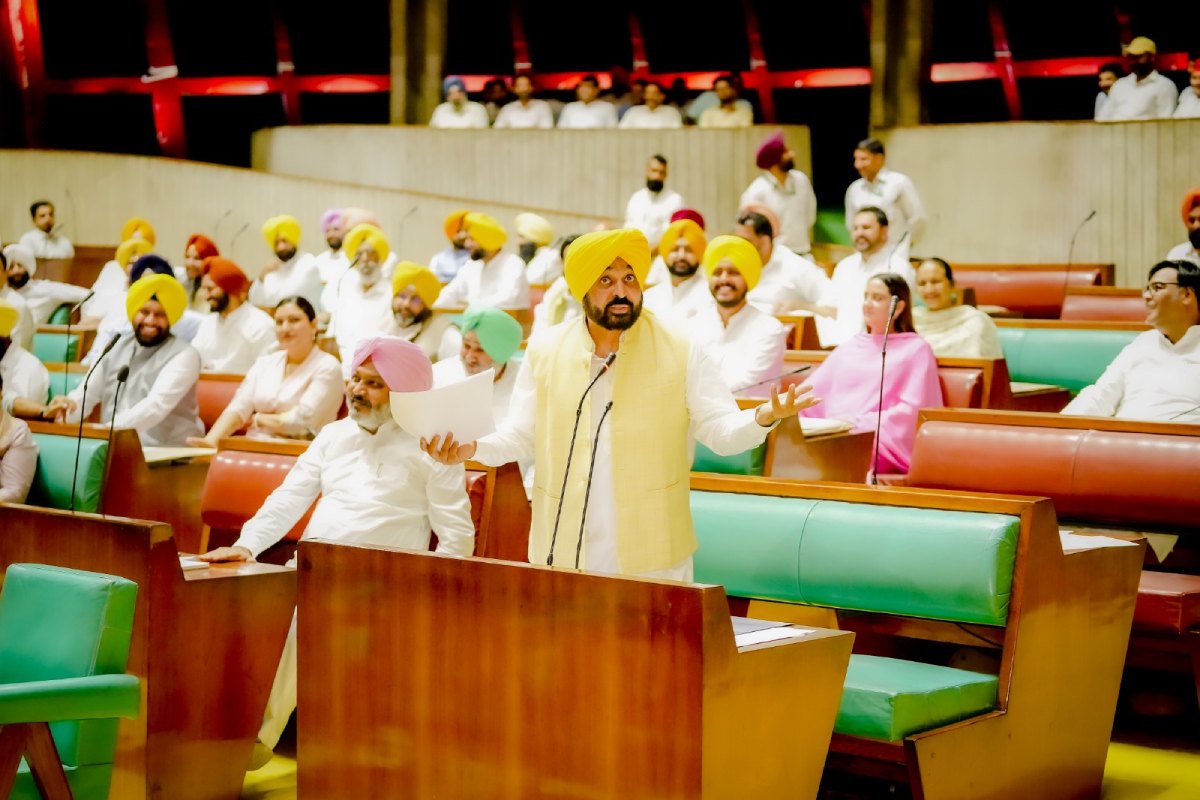The Punjab Assembly on Tuesday passed the Punjab Police (Amendment) Bill 2023 for “independent mechanism for selection and appointment” of the director general of police (head of state police force).
As per the Bill, the selection of the state DGP will be done by a committee headed by a retired chief justice or a judge of the Punjab and Haryana High Court. The empanelment committee will prepare a panel of three senior most officers. The select officer will serve as DGP for a minimum of two years.
Advertisement
The Bill aims to ensure the DGP’s “appointment is free from political and executive interference”.
The contention of the Bill is that ‘public order’ and ‘police’ “appear in the ‘State List’ under the Seventh Schedule 1950 and are, thus, matters falling in the of the Constitution of India, exclusive domain of the States”.
“The constitutional framework envisions a ‘federal structure’ wherein the states are exclusively empowered, through its legislature, to enact laws concerning ‘public order’ and ‘police’.
It is necessary to put in place a proper mechanism for selection/appointment and removal of DGP which takes into consideration the peculiar challenges faced by the State of Punjab by virtue of being a border-State. In order to achieve this objective, it is proposed to amend Section 6 of the Punjab Police Act, 2007,” it said.
Opposition parties allege this move by the Bhagwant Mann Government aims to regularise its “puppet” DGP with the move.
The Punjab Police is having an acting DGP, Gaurav Yadav, for 11 months now as the Aam Aadmi Party (AAP) Government is yet to recommend a panel of officers for appointment of DGP through Union Public Service Commission (UPSC) as per the Supreme Court judgment. Through the Bill passed today, the government is keen on allowing Yadav to continue as DGP.
According to Supreme Court judgments, the appointment of the top police post has to be taken up by the state government in consultation with the UPSC. In 2006, the SC stated the DGP will be appointed by the state government from officers empanelled by the UPSC. In 2018, the SC clarified the judgment, maintaining the involvement of the UPSC in the appointment process.











